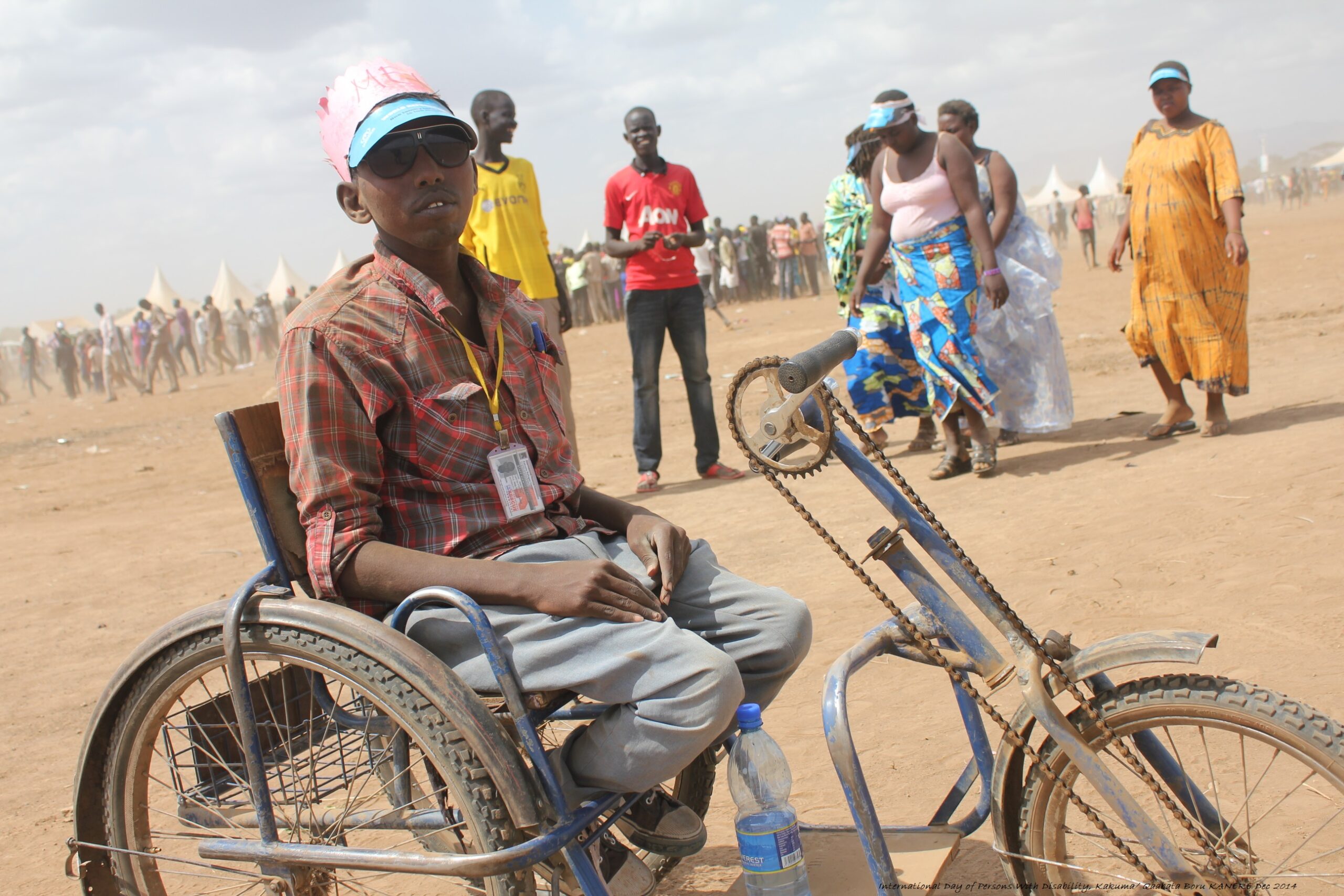By Addisu Aznato – Kakuma
One day I asked my students in Intermediate English Language class if they had known the English word “beauty”, but they said they hadn’t.
By Addisu Aznato – Kakuma
One day I asked my students in Intermediate English Language class if they had known the English word “beauty”, but they said they hadn’t.
Fighting erupted in Kakuma Refugee Camp killing at least 20 people and injuring hundreds.
World Food Programme to cut food rations for Kenyan refugees by half, affecting over 500,000 camp residents.
More than 700 people including a dozen refugees from Kakuma refugee camp were among those held hostage.
In Kakuma refugee camp the International Day of Persons Living with Disability is observed, falling within the 16 Days of Activism against Gender-based Violence.
Kakuma Refugee Camp hosts hundreds of refugees with disabilities, the largest number being visual impairment, hearing difficulties and physical disability.

Dear KANERE readers,
I take this opportunity to welcome our readers through this double edition of KANERE. It’s with huge compliment as we send our heartfelt condolences to refugee communities in Kenya following the large scale security swoops that have targeted the refugee populations in the urban areas since April.
For several months, the weather in Kakuma remained warm and dry. The camp observed relatively fewer security problems as compared to a year earlier. However, some parts of the camp had experienced violent tribal conflicts among the South Sudanese communities that led to four people dead including a school going teenager.
In this issue, we are focusing more on the plight of the refugees in urban centers with in-depth stories illustrating facts about the recently launched ‘Usalama Watch’ or ‘Counter-terrorism’ operation.
The operation is an attempt to identify illegal aliens residing in the country and subsequently to eliminate the people from places the Kenyan government believes to be harboring terrorists. The operation had largely negative impacts on the foreigners and the refugees in the country, who have criticized and opposed the move.
The arrest and detention of refugees in the urban areas started on the 1st April as a part of a large scale security operation by the security machinery. It was followed by forced relocation to isolated refugee camps. Refugees interviewed by Kanere journalists, told of illegal arrests, extortion and detentions by police.
Hundreds of refugees, mainly of Somali origin, were deported without the due process of law. There are bitter stories of how families were split. Mothers were separated from their children and even by the end of July, there are several families who are not yet reunited.
During the month of April, many Non-governmental organizations providing humanitarian services, including the UN Refugee Agency – UNHCR, kept silent. They might have reasons for this or are they too afraid to exercise their mandate? Refugees in Kakuma are speculating on what will happen if the Kenyan government decides to close all the camps and force the refugees out of the country?
As a double edition, we have other stories on the inter-clan conflict between the Diauechuk and Ayuel, subgroups of South Sudan’s Dinka tribes, and an in-depth-story on the “Lost Boys” of Sudan – a generation that has lost for the second time.
Other stories cover the refugee interpreters who went on protest demanding a raise in the incentive payment as employees of UNHCR; while as a tradition, the World Refugee Day was commemorated by both the camp residents and the members of the host community at Kalemchuch field.
The colorful day was “celebrated” by the humanitarian aid agencies and had high profile guests. Among other notables in attendance were US Ambassador Robert Godec, UK Ambassador Christian Turner and three other Ambassadors to Kenya, Government officials including the county commissioner for Turkana West.
In this past week Kenya witnessed its 17th explosion since the Westgate attack. The country has suffered scores of grenades, gunfire assaults and continues to face threats of terror attacks from Somalia based Al-Shabaab militia. However, it’s not yet clear why the US is pulling the Peace Corps Volunteers out of Kenya secretly!
In this edition, Kanere is reminding the Government of Kenya and UNHCR, in line with protection of refugees and asylum seekers in the country, that international law forbids the refoulement (forced expulsion) of refugees.
We are looking forward to a day that the governments, the world leaders and those who are directly dealing with refugees would have a better understanding and a well established mechanism for dealing with issues surrounding the security of persons of concern in need of international protection.
We hope by reading through these stories everyone can be able to act to the best of their ability for the protection of refugees globally.
Get back to us with your feedback, get involved, send your positive contributions as well as criticism!
Enjoy reading!
Sincerely,
Qaabata Boru
Editorial Executive – KANERE
In Kakuma 1, conflict between the South Sudanese Dinka clans of Diauechuk and Ayuel broke out following an old rivalry.
Police round up refugees in Kakuma 1 without notice of an imposed curfew.
Thousands of refugees in Kakuma and large numbers of humanitarian agencies showed up to commemorate the day with cultural dances.
By Qaabata Boru – kakuma.news@gmail.com
The Lost Boys and Girls of Sudan are a large group of people who were forced to leave their homes as unaccompanied children following regional strife between North and South Sudan in late 1980s.